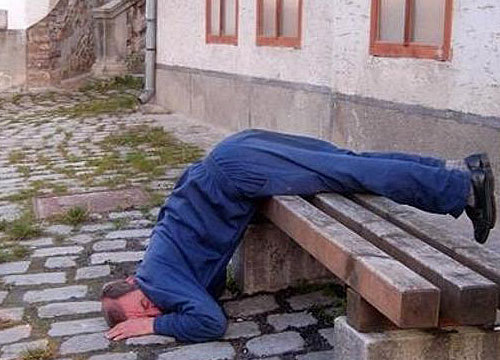Sleep
We love it. At least as adults we do. And we all need it. But some of us need to get more.
Let's say you work out (which you do). The basic truth is that you may spend an hour in the gym each day, but it's the 23 hours spent recovering where you make actual gains in your fitness. Pretty simple: you work and your body adapts. Due to a breakdown of the muscle by placing it under load, the body rebuilds to resist future stress. During recovery, there are a series of natural body responses to any "work" that has recently been completed; growth occurs both with your muscle cells and connecting tissues but also with your central nervous and endocrine systems. Specifically, there are multiple hormone responses that trigger strength gains and cardiovascular adaptations.
This "work" that is so important (widely accepted in the fitness world as overload) needs to be followed up with recovery.

This is where sleep comes in. Sleep is the time where lots of learning takes place (as well as those heinous nightmares, you freak), but it's also the time to recuperate from the day. And where benefits can be made from the workout(s) you completed.
So... how much sleep is necessary? Are we getting the right amounts? And what about naps???
The average adult sleeps less than 7 hours per night. In today’s fast-paced society, 6 or 7 hours of sleep may sound pretty good. In reality, it’s might be a recipe for chronic sleep deprivation.
| Average Sleep Needs | |
| Age | Hours |
| Newborns (0-2 months) | 12 - 18 |
| Infants (3 months to 1 year) | 14 - 15 |
| Toddlers (1 to 3 years) | 12 - 14 |
| Preschoolers (3 to 5 years) | 11 - 13 |
| School-aged children (5 to 12 years) | 10 - 11 |
| Teens and preteens (12 to 18 years) | 8.5 - 10 |
| Adults (18+) | 7.5 - 9 |
While sleep requirements vary from person to person, most healthy adults need between 7.5 to 9 hours of sleep per night to function at their best. Children and teens need even more. And despite the notion that our sleep needs decrease with age, older people still need at least 7.5 to 8 hours of sleep. Since older adults often have trouble sleeping this long at night, daytime naps can help fill in the gap.
Common Myths About Sleep (From the National Institutes of Health)
Myth 1: Getting just 1 hour less sleep per night won’t affect your daytime functioning. You may not be noticeably sleepy during the day. But even slightly less sleep can affect your ability to think properly and respond quickly, and compromise your cardiovascular health, energy balance, and ability to fight infections.
Myth 2: Extra sleep at night can cure you of problems with excessive daytime fatigue. Not only is the quantity of sleep important but also the quality of sleep. Some people sleep 8 or 9 hours a night but don’t feel well rested when they wake up because the quality of their sleep is poor.
Myth 3: You can make up for lost sleep during the week by sleeping more on the weekends. Although this sleeping pattern will help relieve part of a sleep debt, it will not completely make up for the lack of sleep. Sleeping later on the weekends can affect your sleep-wake cycle so that it is much harder to go to sleep at the right time on Sunday nights and get up early on Monday mornings.
As for naps?
Good reads on our internet machine....
HERE: http://artofmanliness.com/2011/02/07/unleash-the-power-of-the-nap/
HERE: http://www.sleepfoundation.org/article/sleep-topics/napping
And HERE: http://michaelhyatt.com/why-you-should-take-a-nap-every-day.html
Let me know if you find more. Napping feels awesome. But will it mess up your sleep cycle? Maybe. Gotta figure out if it's necessary and beneficial to you. If not, skip it, and set up a consistent nighttime pattern. See, there's inherent stages of sleep that need to take place overnight for full recovery to occur. This also matches up with our dream sequences, in case you were intrigued.

So. Sleeping.
It's about figuring out what you can fit into your busy schedule (we all have one) and recover from the day... for our purpose here, the workouts you've done each day/week. If you value your fitness, which you do-- it's why you're here, afterall, then you'll consider setting up a consistent schedule that allows you the most recovery from all the hard work you're putting in weekly at the gym.
Sleep right and benefit.
-Scott, 7.16.2012
